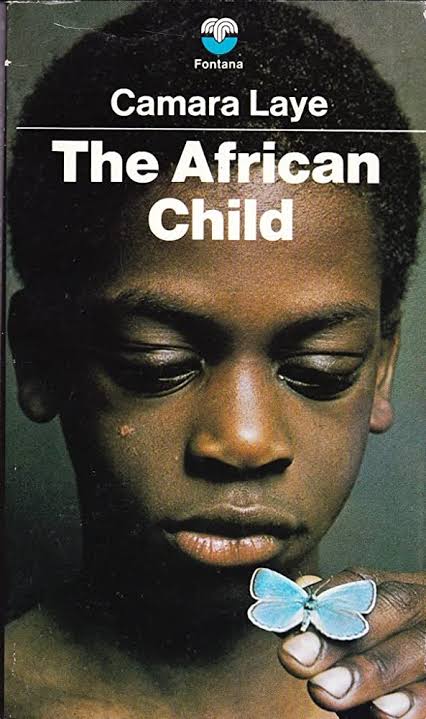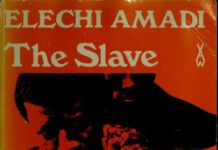The African Child by Camara Laye can be read from different perspectives to give different themes, some of which are the theme of love, theme of tradition and modernity, theme of pain of separation, and theme of growth.
Theme of Love
The theme of love is a prevailing theme in the The African Child. Love manifests in the emotional bond shared between the author and his mother, to whom the book is dedicated.
Their mutual affection finds expression during moments of heart-wrenching separation or joyous reunions, like the author’s departure for Conakry or their emotional meeting after weeks of being apart due to his circumcision.
Within these moments, we witness the tenderest displays of emotions between them, a love that surpasses words.
The author’s relationship with Marie proves to be equally profound, transcending his childish attachment to Fanta, and nearly rivaling his affection for his mother, albeit in a distinct manner.
As Laye matures, his love for other women becomes a source of conflict with his mother, stemming from her possessive and jealous nature, which he begins to resent. With time, his understanding of love evolves, and the complexities of various relationships shape his perceptions.
Not to be overlooked is the unwavering love of his father, evident in key moments of the story, such as the author’s departure for Conakry and later, his journey to France.
The fondness exhibited by his maternal grandmother in Tindican plays a vital role in the intricate web of love depicted throughout the novel.
In Camara Laye’s The African Child, love proves to be a multi-dimensional force, threading together the hearts of mothers, sons, fathers, and grandparents.
Theme of Tradition and Modernity
The African Child is an interplay between traditional values and western ideas, vividly showcased through Camara Laye’s educational journey.
In the novel, western education coexists harmoniously with age-old customs such as initiation and circumcision rites, as well as beliefs in mystical potions to enhance the mind and talismans for protection against malevolent spirits.
Marabouts, revered spiritual guides, play a significant role in this set-up. They are sought after to foretell the future and invoke ancestral spirits through sacrificial rituals. The author’s departure to Conakry is commemorated with a grand feast attended by both marabouts and witch-doctors, their presence underscoring the blend of cultural practices.
Amidst the coexistence of these traditional beliefs, Laye himself holds unwavering faith in some of these methods, recognizing the genuine healing power possessed by certain medicine-men. However, the tragic outcome of Check Omar’s illness and his eventual death prompt a shift towards seeking the assistance of a white doctor in a dispensary, marking the subtle pull of modernity in critical circumstances.
Even as Laye prepares for his proficiency certificate examination, he finds himself contemplating the role of superstition in his actions. He acknowledges his belief in the importance of seeking help from God and views marabouts as natural intermediaries for divine guidance. The marabouts, being Moslem diviners who create the magic brain potion, embody a blend of Islamic and traditional values that shape Laye’s choices.
The African Child is an amalgam of traditional, Islamic, and Western ideals. It portrays a society where ancient customs and modern influences coexist, intertwined in the fabric of daily life.
As the protagonist navigates this diverse landscape, he grapples with questions of faith, superstition, and the ever-evolving balance between preserving ancestral practices and embracing the progress of modernity.
Theme of Agony of Separation
The African Child delves into the heart-wrenching theme of the agony of separation — the inevitable and sometimes agonizing separation from loved ones.
The depth of love shared between Camara Laye and his mother intensifies the anguish of their parting, making them the greatest sufferers in this regard.
However, other family members, including his father, siblings, and loved ones like Fanta and Marie, also bear the weight of Laye’s persistent departures from home in pursuit of his studies, especially given his role as the eldest child.
As he shuttles between Conakry and Kouroussa during holidays, Laye must bid farewell to Fanta and Marie, adding to the ache of separation. His time away from home in Conakry is also tinged with an inevitable sense of nostalgia and homesickness.
The novel reaches its climax with Laye’s painful departure for France, an event he loathes recalling. The memory of that separation evokes emotions, as he vividly recalls his mother’s heart-wrenching wails, his father’s tearful struggle to hide his emotions, and the image of his sisters and brothers bidding him farewell. The experience is likened to being torn apart, revealing the profound emotional toll of separation.
During his flight from Conakry to France, Laye’s companion, Marie, travels with him until Dakar, Senegal, where they must part tearfully as she continues her studies.
The African Child paints a powerful portrait of the human experience of separation and the profound pain that accompanies farewells. It captures the heartache of leaving loved ones behind, and the struggle to carry on in the face of profound loss.
Theme of Growth
The African Child tells the captivating story of growing up, a transformative phase spanning childhood to adolescence. This developmental stage embodies blissful innocence and moral purity, yet remains profoundly impressionable, with seemingly inconsequential events leaving indelible imprints on the young mind.
Camara Laye’s growth in an African society is loaded with experiences. The encounters with snakes, treasured trips to Tindican, the enchanting rituals of rice-harvesting, the initiation rites, the profound significance of circumcision, and the rich tapestry of school life, all play integral roles in shaping his young soul.
In this African society, supernatural and superstitious elements intertwine with religious beliefs and social values. Mystical beliefs and the allure of the supernatural resonate deeply, and the impact of traditional customs leaves a lasting impression on the young boy’s psyche.
As he navigates this multifaceted African society, its peculiarities come to life, permeating every aspect of Laye’s upbringing. His encounters with spirits, rituals, and religious practices all add layers of depth to his formative years.
The novel captures what growing up in a traditional African society is like. It weaves together a rich tapestry of experiences, beliefs, and values.
Further Reading:
- Characterisation in Camara Laye’s “The African Child”
- Plot Summary of Camara Laye’s “The African Child”
 WHATSAPP: Click HERE to join the new Literature PADI WhatsApp group to receive latest updates on your phone and for further literary discussions!
WHATSAPP: Click HERE to join the new Literature PADI WhatsApp group to receive latest updates on your phone and for further literary discussions!








